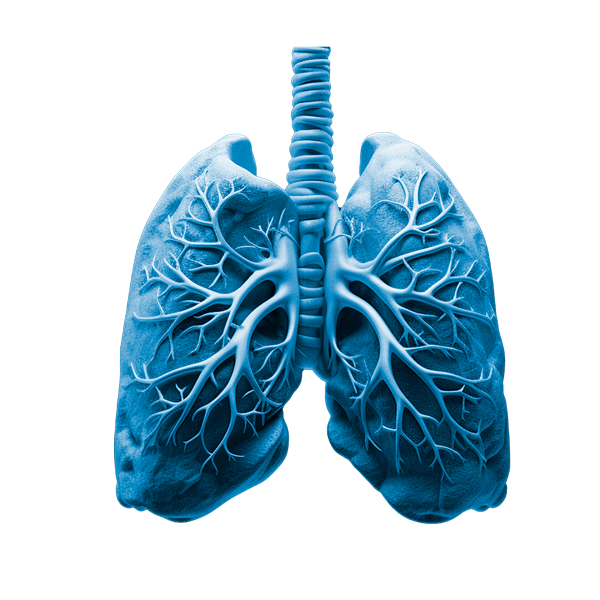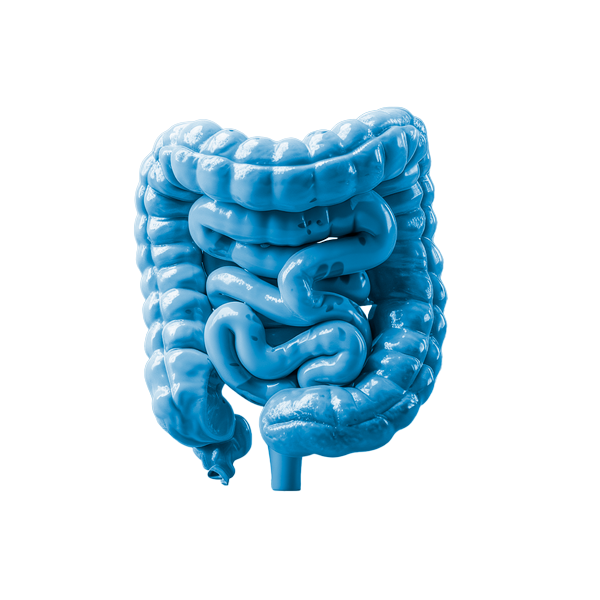

Innovative approaches for organ and tissue health
Heart
Cardiac disorders, including ischemic heart disease (such as angina and myocardial infarction) and cardiomyopathy (heart failure) benefit from stem cell therapy. Stem cells, due to their paracrine signaling and regenerative properties, preserve cardiac muscle contractility, stimulate the formation of new blood vessels (angiogenesis), and reduce inflammation and fibrosis. This therapy also improves heart function and left ventricular ejection fraction (LVEF), reduce infarct size, and enhance the overall recovery of the heart tissue after injury.

Heart
Cardiac disorders, including ischemic heart disease (such as angina and myocardial infarction) and cardiomyopathy (heart failure) benefit from stem cell therapy. Stem cells, due to their paracrine signaling and regenerative properties, preserve cardiac muscle contractility, stimulate the formation of new blood vessels (angiogenesis), and reduce inflammation and fibrosis. This therapy also improves heart function and left ventricular ejection fraction (LVEF), reduce infarct size, and enhance the overall recovery of the heart tissue after injury.

Diabetes
It is a condition characterized by elevated blood glucose (sugar) levels, leading to various health complications. Scientific evidence shows that stem cells improve glycemic control, reduce glycosylated hemoglobin (HbA1c) levels, and lower insulin requirements, improving the clinical condition and quality of life of patients.

Diabetes
It is a condition characterized by elevated blood glucose (sugar) levels, leading to various health complications. Scientific evidence shows that stem cells improve glycemic control, reduce glycosylated hemoglobin (HbA1c) levels, and lower insulin requirements, improving the clinical condition and quality of life of patients.

Lungs
They possess a remarkable capacity for self-repair but are often subjected to damaging environmental and endogenous factors. Scientific studies have shown that stem cell therapy can provide significant benefits for patients with chronic lung diseases, such as pulmonary fibrosis, pulmonary hypertension, chronic obstructive pulmonary disease (COPD), and asthma. Stem cells can promote tissue regeneration, reduce inflammation, and enhance lung function, leading to improved respiratory symptoms and overall quality of life.

Lungs
They possess a remarkable capacity for self-repair but are often subjected to damaging environmental and endogenous factors. Scientific studies have shown that stem cell therapy can provide significant benefits for patients with chronic lung diseases, such as pulmonary fibrosis, pulmonary hypertension, chronic obstructive pulmonary disease (COPD), and asthma. Stem cells can promote tissue regeneration, reduce inflammation, and enhance lung function, leading to improved respiratory symptoms and overall quality of life.

Liver
Although the liver has notable regenerative capacity, it can be compromised by viral infections, drugs, toxins, metabolic disorders, and genetic and immune diseases, leading to acute liver failure or chronic inflammation and cirrhosis. Stem cells have demonstrated repair capacity of the liver by stimulating the differentiation into liver cells and exert anti-inflammatory, anti-fibrotic, and immunoregulatory effects.

Liver
Although the liver has notable regenerative capacity, it can be compromised by viral infections, drugs, toxins, metabolic disorders, and genetic and immune diseases, leading to acute liver failure or chronic inflammation and cirrhosis. Stem cells have demonstrated repair capacity of the liver by stimulating the differentiation into liver cells and exert anti-inflammatory, anti-fibrotic, and immunoregulatory effects.

Digestive Tract
Inflammatory bowel disease (IBD) encompasses three types: chronic IBD, ulcerative colitis (UC), and Crohn's disease (CD). Clinical studies indicate that stem cell-based regenerative medicine can effectively reduce autoimmune inflammation and stimulate the repair of the intestinal mucosa. These therapies have been associated with longer remission periods, decreased frequency of hospitalizations and surgeries and reduction in the use of medications.

Digestive tract
Inflammatory bowel disease (IBD) encompasses three types: chronic IBD, ulcerative colitis (UC), and Crohn's disease (CD). Clinical studies indicate that stem cell-based regenerative medicine can effectively reduce autoimmune inflammation and stimulate the repair of the intestinal mucosa. These therapies have been associated with longer remission periods, decreased frequency of hospitalizations and surgeries and reduction in the use of medications.

Kidneys
They play a crucial role in filtering blood, eliminating waste, and maintaining the body's fluid balance. Stem cells have shown nephroprotective properties, thanks to their immunomodulatory, anti-inflammatory and anti-fibrotic effects. Scientific evidence indicates that these cells can effectively mitigate kidney damage, improve renal function, and safeguard the glomerular and tubular structures in conditions such as chronic kidney failure, lupus erythematosus-related injuries, diabetes, and nephrotic syndrome in children resistant to conventional treatments.

Kidneys
They play a crucial role in filtering blood, eliminating waste, and maintaining the body's fluid balance. Stem cells have shown nephroprotective properties, thanks to their immunomodulatory, anti-inflammatory and anti-fibrotic effects. Scientific evidence indicates that these cells can effectively mitigate kidney damage, improve renal function, and safeguard the glomerular and tubular structures in conditions such as chronic kidney failure, lupus erythematosus-related injuries, diabetes, and nephrotic syndrome in children resistant to conventional treatments.

Metabolic Syndrome (MS)
It includes abdominal obesity, elevated triglycerides (with or without high cholesterol), low HDL cholesterol, high blood pressure, hyperglycemia, and nonalcoholic fatty liver disease, leading to an increase in cardiovascular risk. The underlying features of MS include a chronic inflammatory state, atherosclerosis, and insulin resistance. Stem cells can effectively target and regulate several components of metabolic syndrome, offering an innovative approach for managing MS and its related complications.

Metabolic Syndrome (MS)
It includes abdominal obesity, elevated triglycerides (with or without high cholesterol), low HDL cholesterol, high blood pressure, hyperglycemia, and nonalcoholic fatty liver disease, leading to an increase in cardiovascular risk. The underlying features of MS include a chronic inflammatory state, atherosclerosis, and insulin resistance. Stem cells can effectively target and regulate several components of metabolic syndrome, offering an innovative approach for managing MS and its related complications.

Graft-versus-host disease (GVHD)
It is a serious complication that occurs after allogeneic transplants, where the donor's immune cells (the graft) recognize the recipient's cells (the host) as foreign and attack them. Stem cell therapies offer significant benefits in the prevention and treatment of acute and chronic GVHD in children and adults.

Graft-versus-host disease (GVHD)
It is a serious complication that occurs after allogeneic transplants, where the donor's immune cells (the graft) recognize the recipient's cells (the host) as foreign and attack them. Stem cell therapies offer significant benefits in the prevention and treatment of acute and chronic GVHD in children and adults.
Contact us
Fill out this form for more information and get our scientific handbook "Evidence of the Medical Benefits of Stem Cells" for FREE.
- Read our quality policy
-
Calle 14 # 23-41,
sector Álamos Pereira. - +57 313 870 3120
- [email protected]
